INTRODUCTION
“Brotherhood, equality, and fraternity of man; these are all the basic points of our religion, culture, and civilization and we fought for Pakistan because there was a danger of the denial of these human rights in this Subcontinent”
~ (M A JINNAH, Chittagong on 26th March, 1948)
All nations have their ideologies but not necessarily comprehensive. Most of them emphasize the materialistic aspect of life. Islam offers a comprehensive ideology with the minutest details of the daily lives of men, women, and children, private and public, religious and otherwise. Both Quaid-i-Azam and Allama Iqbal emphasized the comprehensive nature of Islamic teachings on several occasions. Quaid’s speech on Islamic Law (Sharia) in the Indian Legislative Council in Sep 1937 wherein he called ‘Shariat’ as the fountain source of different schools of law and most just and progressive and advanced than the prevailing system.
Allama Iqbal’s famous 1930 ‘Allahabad Address’, ‘Letters to Jinnah’, ‘Asrar-e-Khudi’, ‘Ramuz-e-Bekhudi’ and ‘Reconstruction of Religious Thought in Islam’ ideologically complement Jinnah’s gradual discourse towards laying the foundations for a ‘State’. A state which in consideration with South Asia was not a completely Muslim region, another significant identity lived alongside them that believed in divine plurality with a deeply entrenched caste system which was against Islamic concepts of divine unity and caste-less society. This distinction created a mass difference between Muslims and Hindus in every walk of life.
“The difference between the Hindus and the Muslims is deep rooted and ineradicable. We are a nation with our own distinct, culture and civilization, language and literature, art and architecture, names and nomenclature, sense of value and proportion, legal laws and moral codes, customs and calendar, History and tradition, aptitudes and ambitions, and our own distinctive outlook on life and of life. By all canons of international law, we are a nation”
~ (Quaid-i-Azam’s interview to Preston Grover of APA, July 1, 1942)
GENESIS OF IDEOLOGY
‘Ideology’ is a composition of two Greek words “ideo” and “logos”; literally meaning “the science or study of ideas”. The ideology of any nation reflects the ideals and aspirations of its people; a homogeneous entity of religion, customs, traditions, and culture. Their thinking which binds them together and in a positive pragmatic sense; a system of beliefs, values, ideals, convictions, institutions, goals, and a body of knowledge that people consider to be true, binding, and rightful in approach.
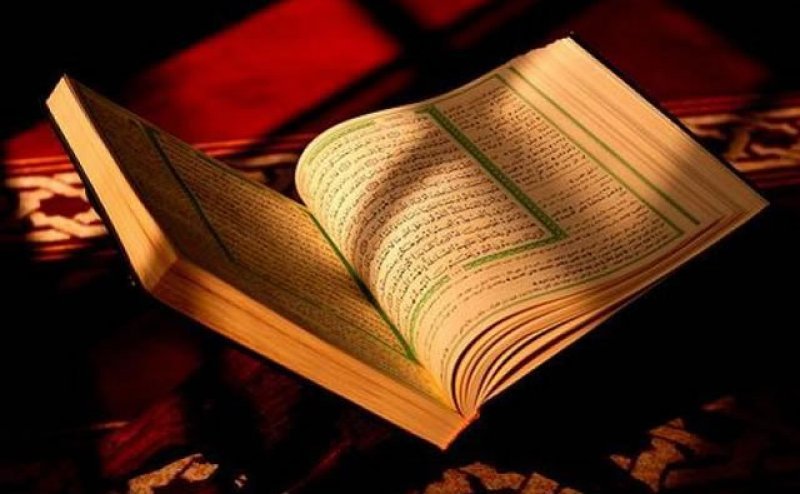
Image Source: Naat Audio
In chaotic times be it crises or social distress, it’s the anchor which holds together with the bond of clarity and unity of thought. A society lacking in this concept when faced with a crisis may find it difficult to align with its ethical, moral, and practical aspects whether to confront the challenge with courage or retreat from it. At these defining moments or junctions; conceptually clear ideologues who assist in binding function, also provide a simple and sure answer, leaving no chances for subsequent regrets. This is inherent in fighting for principle.
Historical Examples
There is not a major movement in history, whether religious, social, political, or economic that is entirely bereft of a well-defined, formalized, systematized, boundary bound, and crystallized ideology, which sustains its foundations through the wearing test of time. Three notable examples are the French revolution, the Soviet Union, and Nazi Germany. French revolution to a nation led by the ideology of ‘Liberté, Égalité & Fraternité’. These ideals transformed the French into a critical mass.

Image Source: Lawrence Public Library
The American Revolution in 1775 talked of ‘No taxation without representation’. Political scientists like Edward Shils proclaimed the end of ideology in the early 1950s but more recently in 2000, William Pfaff writes that it still looms large in the quest for power. Winston Churchill in his epoch address at Zürich University on 19th September 1946, asserted that: “Europe is hailed as the fountain of Christian faith and Christian ethics”.
Perhaps that is why Brussels in 2007 denied Turkey membership in the EU, while she has been western and secular since 1927 with swearing by these attributes day-in and day-out. Although a distinctive divergence and restoration of Islamic values are seen under the leadership of Recep Tayyip Erdoğan. Ideology in a broad sense represents a cluster of over-arching values, and of shared beliefs; ideals and concepts; that is at the center of a people’s ethos, deeply ingrained in their social consciousness over time, a legacy of their ancestral heritage charged and saturated with emotions vis-à-vis a source of their cumulative identification. Thus ideology finds root within the hidden torrents of emotions of the people as nothing else does. It induces an almost instinctive allegiance to causes inspired by the beliefs and ideals.
If Europe once characterized by religious identity is now proud of its secular uniformity, why should Pakistan be ashamed of its Islamic ideology?
Being raised in ideological and political terms, for the most part, the demand for Pakistan was argued at the macro level, with Islam as the cultural metaphor. For Muslims in pre-Partition India, with their deep horizontal, vertical, regional, and linguistic cleavages, Islam could serve as a rallying cry. On 22nd March 1940, Jinnah told his Lahore audience: “The Hindus and Muslims belong to two different religious philosophies, social customs, literature, Indeed they belong to two different civilizations, their aspects on life and of life are different. Hindus and Muslims derive their inspiration from different epics, different heroes and different episodes”.
In his 18th June 1945 message to the Frontiers Muslim Student Federation (MSF), he asserted,
“Pakistan not only means freedom and independence but the Muslim ideology which has to be preserved, which has come to us as a precious gift and treasure, and which, we hope, others will share”.
On 21st February 1948, he had stressed the need for, “Development and maintenance of Islamic democracy, Islamic social justice and equality of manhood in Pakistan”.
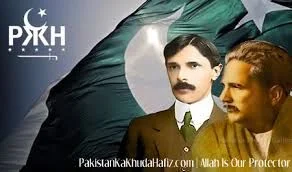
Image Source: Pinterest
Jinnah’s genius in the domain of law, politics, and statesmanship is exemplary but his knowledge about Islam was in embryonic stages, reflective from his initial statements regarding support for Iqbal’s proposition of an idea of a separate nation to a more outspoken Jinnah about the concept of an Ideological state near partition. His concept of full citizenship for one and all, for Muslims and non-Muslims, is in consonance with the Misaq-i-Madina and the Islamic pluralistic tradition. Indeed, Jinnah’s Islamic Democracy initially subsumes the concept of one, indivisible nationhood, even as the Misaq did in terms of the multi-religious, multi-cultural and multi-lingual Madeenan state. La Ikraha Fid-Deen (there is no compulsion in religion) and Lakum Deenakum wa laay al-Deen (to you your way of life and to me mine) are a few examples still quoted by Not-So-Muslims and Non-Muslims.
Anyone with a strong background in Islamic sciences would elaborate that the state of Madina when the Misaq took place was only in its foundational stages, even Qur’an was not completely revealed therefore as Muslims grew strong and Prophet ﷺ final address signified the completion of Islam as a religion, Madina transformed into a state which can be adequately quoted as an example. Picking and choosing from a different time in history skipping the context to suit one’s particular viewpoint no doubt is intellectually dishonest. Perhaps a more dispassionate take would be that Jinnah stood for a ‘Muslim Ideology’ which he hoped ‘others will share with us’. The use of word share is critical. It means willing consent on others’ part and not compulsion or coercion to accept the ideology under duress.
While Jinnah was sure that Pakistan’s constitution would be of a democratic type embodying the essential principles of Islam, he reaffirmed unequivocally that ‘Pakistan is not going to be a theocratic State to be ruled by clerics with a divine mission’, broadcast to the people of United States, February 1948. Keeping this in view it should be thought-provoking for any citizen of Pakistan as to why his most trusted man, the one titled by historians as Jinnah’s ‘Right hand’ would draft an Objective Resolution which provided the preamble to all the three constitutions and is an integral part of 1973 constitution, envisages an ‘Islamic Democracy’ and incorporates the core Islamic aspirations behind the Pakistan movement.
Pakistan’s Ideology
Ideology of Pakistan, Two-Nation Theory, and Pakistan Movement represent our long struggle for identity and independence, passing through the following stages:
- The arrival of the ‘Concept of Tawheed‘ in the subcontinent more than 1300 years ago in a caste-ridden, superstitious society ridden with inequality of mankind ridden with injustice.
- Millions entering the fold of Islam over subsequent periods and the beginning of a new caste-less society adherent to its religious values.
- Mughal empire flourishes with its eventual crumbling as ‘The Company’ enhances its hold over the empire.
- Widespread political, economic, and social deprivations within Muslim society.
- Attempts to re-consolidate Muslim society by reviving Islamic identity which became the basis of the Two-Nation Theory.
- Political and geographical expression of the revival of Islamic identity in the shape of demand for a separate homeland, i.e. Pakistan.
- Role of Allama Iqbal and Quaid-i-Azam not only in reviving Islamic identity but formulating a dynamic vision for the new country founded on principles derived from Islam as a broad, embracive, assimilative way of life which acknowledged change and possessed the inherent capacity of responding meaningfully to altered conditions of modern life.
MUSLIMS IN SUBCONTINENT
Historical Context
The ‘History of Pakistan’ emanates from the history of the subcontinent as a region. Before independence in 1947, the territory of modern Pakistan was a part of the British Indian Empire. Prior to that, it was ruled in different periods by local kings and numerous imperial powers. The ancient history of the region comprising present-day Pakistan also includes some of the oldest names of empires of South Asia and some of its major civilizations.
Advent of Islam in the Sub-Continent
Trade relations between Arabia and the sub-continent dated back to ancient times, long before the advent of Islam in Arabia. After the Arab traders became Muslim, they brought Islam to South Asia. However, it was the Muslim conquests in Persia, including the provinces of Kirman and Makran, which brought the Arabs face to face with the then ruler of Sindh, who had allied with the ruler of Makran against the Muslims.
In 712, Hajjaj sent 6,000 selected Syrian and Iraqi soldiers, a camel corps of equal strength, and a baggage train of 3,000 camels to Sindh under the command of his nephew and son-in-law, Imad-ud-din Muhammad bin Qasim, a young boy of just 17 yrs. He also had a ‘Manjaniq’, or catapult, which was operated by 500 men, could throw large stones at a considerable distance. Governor of Makran, who provided him with additional forces, joined him as well for military expedition. Interestingly a good number of Jatts and Medds, who had suffered at the hands of native rulers, joined the Arab forces. Military conquests of Muhammad bin Qasim are as follows:
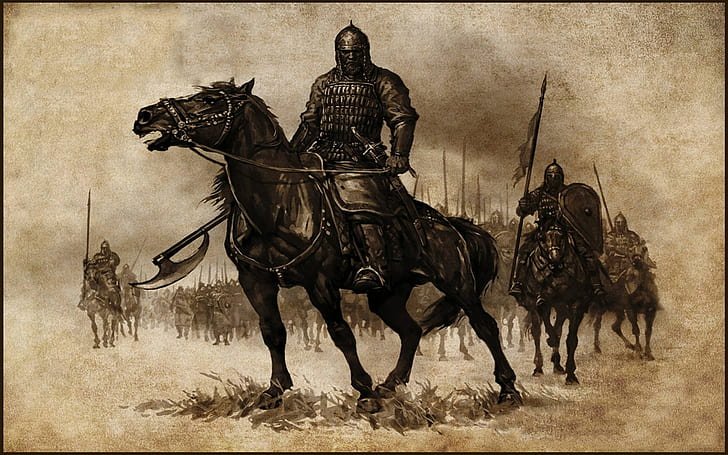
Image Source: Wallpaper Flare
- Captured Debul then turned towards Nirun, near modern Hyderabad, where he easily overwhelmed any opposition.
- Raja Dahir decided to oppose the Arab army at Raor, where after a fierce struggle; he faced defeat and was killed.
- Raor fell into the hands of the Muslims, whereupon the army occupied Alor and proceeded towards Multan.
- The Hindu ruler of Multan offered resistance for two months after which his forces were overpowered and defeated.
- Prior to this, Brahmanabad and a few other important towns of Sindh also fell under the control of the Muslim army.
- Muhammad bin Qasim was planning to expand further when the new Caliph Suleman bin Abdul Malik recalled him. After the departure of Muhammad bin Qasim, different Muslim generals declared their independence in different areas.
The establishment of Muslim rule also paved way for the future propagation of Islam in Sindh and the adjoining regions. With the conquest of Lahore by Mahmud of Ghazni, missionary activity began again under the aegis of Sufis who were the main agents in the spread of Islam of the entire region.
East India Company (1600)
The English East India Company or “The Company” was founded in 1600, as ‘The Company of Merchants of London Trading into the East Indies.’ It gained a foothold in the subcontinent with the establishment of a factory in ‘Masulipatnam’ on the Eastern coast of the subcontinent in 1611 and the grant of the rights to establish a factory in Surat in 1612 by the Mughal Emperor Jahangir. In 1640, after receiving similar permission from the Vijayanagara ruler farther south, a 2nd factory was established in Madras on the southeastern coast. Bombay island, not far from Surat, a former Portuguese outpost gifted to England as dowry in the marriage of Catherine of Braganza to Charles II, was leased by the Company in 1668.
Two decades later, the Company established a presence on the eastern coast as well, also in the Ganges river delta and in Calcutta. Since, during this time other companies established by the Portuguese, Dutch, French, and Danish were similarly expanding in the region, the English Company’s unremarkable beginnings on coastal India offered no clues to what would become of a lengthy presence on the Indian subcontinent. The company inherited a revenue collection system from the Mughals in which the heavy proportion of the tax burden fell on the cultivators, with 1/3rd of the production reserved for imperial entitlement; this pre-colonial system became the company revenue policy’s baseline. In 1772, when Hastings became the first Governor-General, one of his first undertakings was the rapid expansion of the ‘Presidency Armies’. These were the armies of the three presidencies of the East India Company’s rule in India, later the forces of the British Crown in India.
War of Independence (1857)
The Indian Rebellion of 1857 had diverse political, economic, military, religious, and social causes. Friction caused mainly by the ethnic gulf between the European officers and their Indian troops. The aftermath of the rebellion resulted in mass excesses and atrocities committed by both sides. The murder of women, children, and wounded British soldiers at Cawnpore had many British soldiers yearn for revenge. Apart from hanging mutineers, the British had some blown from cannon (old Mughal punishment).
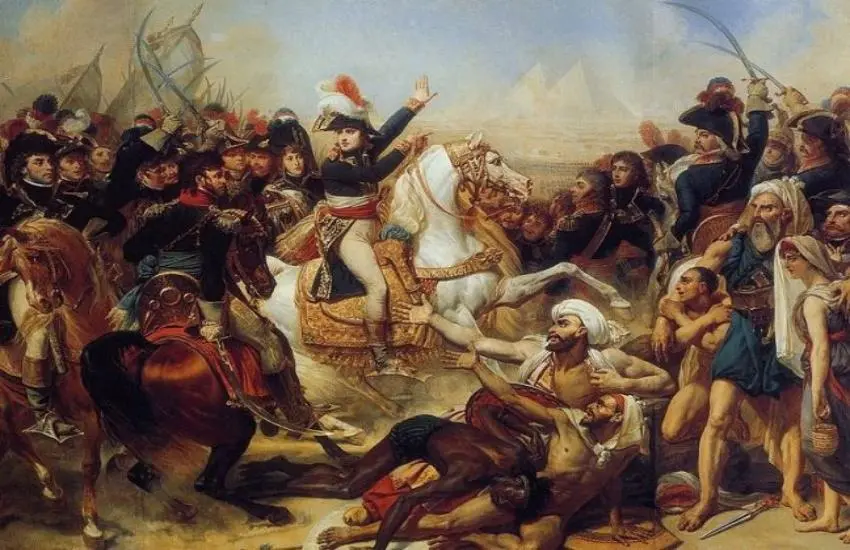
Image Source: Patrika.com
Bahadur Shah Zafar, the last Mughal emperor was tried for treason by a military commission assembled at Delhi, and exiled to Rangoon where he died in 1862, bringing the Mughal dynasty to an end. In 1877 Queen Victoria took the title of Empress of India on the advice of Prime Minister, Benjamin Disraeli. The rebellion saw the end of the East India Company’s rule in the subcontinent. In August, by the Government of India Act 1858, the company was formally dissolved and its ruling powers were transferred to the British Crown.
FACTORS LEADING TO PARTITION
“Happily there is a solution in the enforcement of the Law of Islam and its further development in the light of modern ideas. After a long and careful study of Islamic Law, I have come to the conclusion that if this system of Law is properly understood and applied, at last the right to subsistence is secured to everybody. But the enforcement and development of the Shariat of Islam is impossible in this country without a free Muslim state or states. This has been my honest conviction for many years and I still believe this to be the only way to solve the problem of bread for Muslims as well as to secure a peaceful India. If such a thing is impossible in India the only other alternative is a civil war which as a matter of fact has been going on for some time in the shape of Hindu-Muslim riots. I fear that in certain parts of the country, e.g. N.W. India, Palestine may be repeated”.
~ (Letter of Iqbal to Jinnah, May 28, 1937)
Need for Representation
On 30th December 1906, the annual meeting of the Muhammadan Educational Conference was held at Dhaka under the chairmanship of Nawab Viqar-ul-Mulk. Almost 3,000 delegates attended the session making it the largest-ever representative gathering of Muslim India. For the first time, the conference lifted its ban on political discussion, when Nawab Salimullah Khan presented a proposal for the establishment of a political party to safeguard the interests of the Muslims; the foundation of the All India Muslim League.
Three factors had kept Muslims away from the Congress; Sir Syed’s advice to the Muslims to give it a wide berth, Hindu agitation against the partition of Bengal, and the Hindu religious revivalism’s hostility towards the Muslims. The Muslims remained loyal to Sir Syed’s advice but events were quickly changing the Indian scene and politics were being thrust on all sections of the population. The headquarters of the All India Muslim League was established in Lucknow, and Sir Agha Khan was elected as its first president. Also elected were six vice-presidents, a secretary, and two joint secretaries for a term of three years.
The initial membership was 400, with members hailing proportionately from all provinces. Maulana Muhammad Ali Johar wrote the constitution of the League, known as the “Green Book”. Branches were also set up in other provinces. Syed Ameer Ali established a branch of the League in London in 1908, supporting the same objective.
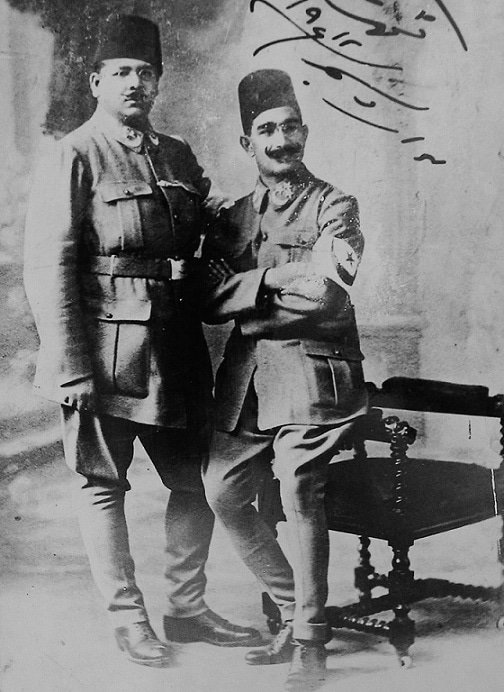
Image Source: Dawn
Objectives of All India Muslim League (AIML)
Following were the objectives of the Muslim League:
- To inculcate among Muslims a feeling of loyalty to the government and to disabuse their minds of misunderstandings and misconceptions of its actions and intentions.
- To protect the political rights and interests of the Muslims of India and to represent their needs and aspirations to the government from time to time.
- To prevent the growth of ill-will between Muslims and other nationalities without compromising to its own purposes.
Many Hindu historians and several British writers allege that it was Lord Minto who inspired the establishment of a Muslim organization so as to divide the Congress and minimize the strength of the Indian Freedom Movement, but these statements are not supported by any evidence. Contrary to this, the widely accepted view is that the Muslim League was basically established to protect Muslim interests and to combat the growing influence of the Indian National Congress. In order to understand the circumstances that led to the demand for and ultimate creation of Pakistan, it is useful to determine the views of the leaders of the Muslim people who faced these circumstances, analyzed them, and shaped them to define the destiny of their people.
Among these luminaries, three are most prominent; Sir Syed Ahmad Khan, founder of the Aligarh University, who examined the causes of Muslim unrest in 1857 and championed the Muslim cause before the English rulers; Muhammad AIi Jinnah, founder of Pakistan, who had at first championed Hindu-Muslim unity but then led the movement for Pakistan after being disillusioned about Hindu leaders’ intentions; and Sir Muhammad Iqbal, a poet, philosopher, and a lawyer, who attempted to secure Muslims’ identity and rights within British India but like Jinnah, became convinced of the futility of such endeavors and subsequently gave expression to the aspirations of Muslims by calling for a separate homeland for them.
This is not to deny the contribution of other luminaries. But the aforementioned three stand a tad taller for their instrumental role in giving shape to an idea. More importantly, they succeeded in their endeavor. Their position is perhaps also distinct because they acted proactively in meeting the challenge, while others reacted to the emerging situation. Products of circumstances they were, no doubt, but they also shaped events and people’s destinies more than others did.
On the other side of the discourse are those Muslim leaders who opposed the division of British India.
Maulana Abul Kalam Azad is most prominent in this regard. His position is a formidable one to reckon with, but so were the views of his fellows in the Congress. These leaders did not represent Muslim sentiments and, therefore, could not stem the tide of the Pakistan movement. An examination of the views of Syed Ahmad Khan, Iqbal, and Jinnah, and the process by which they evolved into their final shape over time, offers insights and a true understanding of the causes that culminated in the emergence of Pakistan. The analysis is accordingly interspersed with the observations, assertions, and statements on important occasions by these personages.
PARTING OF WAYS
Allama Muhammad Iqbal had also championed the notion of Pan-Islamic nationhood “Muslim Ummah” and strongly condemned the concept of a territory-based nation as anti-Islamic: “Of all these new (false) gods, the biggest; is the motherland (waṭan): Its garment; is the death-shroud, of religion…)“. He had stated the dissolution of ethnic nationalities into a unified Muslim society or millat as the ultimate goal: “Destroy the idols of color and blood ties, and merge into the Muslim society; Let no Turanians remain, neither Iranians, nor Afghans“. The politicization of the Muslim community came about as a consequence of three developments:
- Various efforts towards Islamic reform and revival during the late 19th and early 20th centuries.
- The impact of Hindu-based nationalism.
- The democratization of the government of British India.
While the antecedents of Muslim nationalism in India go back to the early Islamic conquests of the subcontinent, organizationally it stems from the demands presented by the Simla Deputation to Lord Minto, the Governor-General of India, in Oct 1906, proposing separate electorates for the Indian Muslims. The principal reason behind this demand was the maintenance of separate identity of the Muslim nationhood. All India Muslim League, a separate political organization for Muslims, elucidated the fact that the Muslims of India had lost trust in the Hindu-dominated Indian National Congress. Besides being a Hindu-dominated body, the Congress leaders in order to win grass-roots support for their political movement, used Hindu religious symbols and slogans, thereby arousing Muslim suspicions regarding the secular character of the Congress. Their suspicions proved to be right as we observe in present-day India where the Congress party takes a backseat with Bharatiya Janata Party (BJP) tearing the weak passive fabric of secularism in political chambers where once a secular Nehru proposed homogeneity of thoughts.
Image Source: ANY TV News
Events like the Urdu-Hindi controversy (1867), the partition of Bengal (1905), and Hindu revivalism, set the two nations, the Hindus and the Muslims, further apart. Re-annulment of the partition of Bengal in 1911 by the British government brought the Congress and the Muslim League on one platform, but that too for a temporary time in order to achieve a common goal. Starting with the constitutional cooperation in the Lucknow Pact (1916), they launched the Non-Cooperation and Khilafat Movement to press upon the British government the demand for constitutional reforms in India in the post-World War I era. The collapse of the Khilafat Movement, Hindu-Muslim antagonism was yet again revived. Muslim League rejected the proposals forwarded by the Nehru Report and they chose a separate path for themselves. The idea of a separate homeland for the Muslims of Northern India as proposed by Allama Iqbal in his famous Allahabad Address showed that the creation of two separate states for the Muslims and Hindus was the only solution.
Pakistan Movement
The Pakistan Movement or Tehrik-e-Pakistan was a political movement in the 1940s that aimed for and succeeded in the creation of Pakistan from the Muslim-major areas of British India.
The movement progressed within India alongside the Indian independence movement, but Pakistan Movement sought to establish a new nation-state that protected the religious identity and political interests of Muslims in South Asia. The first organized political movement was in Aligarh where a literary movement was led by Sir Syed Ahmad Khan that built the genesis of the Pakistan movement. An educational convention held in 1906 with joint efforts of Sir Syed Ahmad Khan and Vikar-ul-Haq, the Muslim reformers took the movement to the political stage in the form of establishing the mainstream and then newly formed All-India Muslim League (AIML), with prominent moderate leaders seeking to protect the basic rights of Muslims in the British Raj.
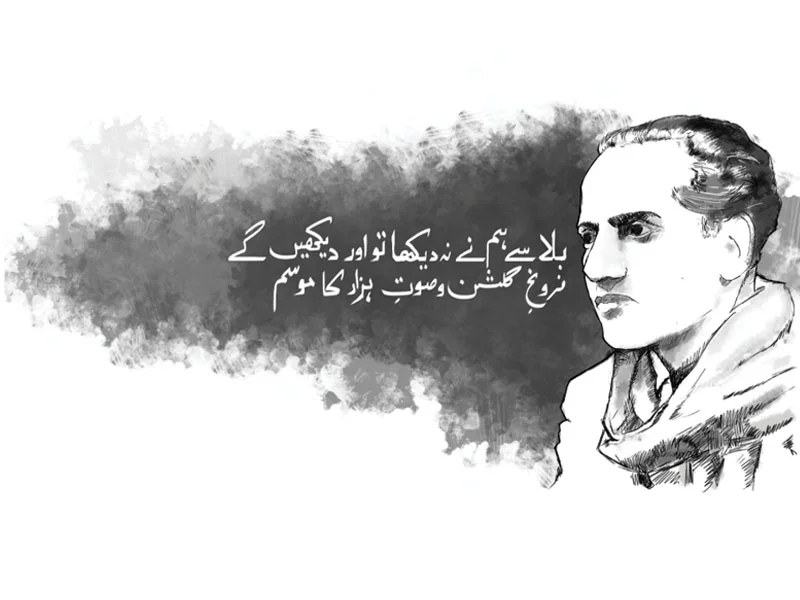
Image Source: Tribune
During the initial stages of the movement, it adopted the vision of philosopher Iqbal after addressing at the convention of the AIML annual session. Muhammad Ali Jinnah’s constitutional struggle further helped gain public support for the movement in the four provinces. Urdu poets such as Iqbal and Faiz used literature, poetry, and speech as a powerful tool for political awareness. Women activists such as Sheila Pant and Fatima Jinnah championed the emancipation of Pakistan’s women and their participation in national politics. Interestingly, the same Faiz’s poetry is being used presently against the very state which he inspired as well as aspired to create.
BIRTH OF A NATION
The emergence of Pakistan towards the middle of the 20th century was a historical event. Those who participated in the Pakistan movement, or sympathized with the idea of a distinct Muslim identity and a need to protect and preserve it, would assert that Pakistan was the ‘product’ of the circumstances and a response to the aspirations of the Muslim population of the subcontinent. However, those who either stood for a united India or did not see the need for a separate state for Muslims for the protection of their identity or promotion of their values viewed its creation as “temporary madness” and a “moth eaten” “aberration” of history.
It was led by a large, resilient, intellectual, and diversified group of people whose struggle ultimately resulted in the British Empire announcing the Indian Independence Act 1947, which created the independent dominions of India and Pakistan. The creation of Pakistan was the result of a series of social, political, and intellectual transformations in Pakistani society, government, and ways of thinking. Efforts and struggles of the ‘Founding Fathers’ resulted in a democratic and independent government. It was the 27th of Ramzan as per the Islamic calendar that momentous day, perhaps just perhaps a divine sign signaling a good start towards a sacred objective.
Post-Independence Challenges for Pakistan
The Muslims faced a gamut of problems immediately after independence. However, keeping true to their traditions, they overcame them after a while. Muhammad Ali Jinnah was appointed the first Governor-General of Pakistan and Liaquat Ali Khan became the first Prime Minister. Pakistan became a dominion within the British Commonwealth of Nations. The boundary of Pakistan emerged on the map of the world in 1947. Unfortunately, Jinnah passed away on 11th September 1948 due to complications from Tuberculosis. Pakistan had lost her father just when she was struggling to stand.
Prime Minister Liaqat Ali Khan as a loyal trusted ally to Jinnah fought onwards to stabilize the fledgling state suddenly rife with ethnic polarization, India’s consistent war mongering, lack of civilian administrative infrastructure, a near-bankrupt state with a million mouths to feed. This intellectual, hailing from an aristocratic family who left everything to join the struggle for Pakistan suddenly found himself surrounded by landlords and Nawabs who helped less yet wanted more. Lack of a political power base and fear of being ousted pushed Liaqat Ali Khan to form alliances with these ‘Lords’ with a sole intention towards giving the founder’s vision at least a rudimentary shape.
On 12th March 1949, his proposed Objective Resolution was accepted albeit with 21 members of Parliament opposing it. On 16th October 1951, he was shot multiple times in the chest by an Afghani named Saeed Akbar. He passed away shortly after and left the nation mourning. In the following years, another nationally minded subset went on to establish a strong government, followed by military intervention in 1958. Grievousness, unbalanced economic distribution, poor land reforms, and Injustice compounded by power-hungry selfish leadership caused an upheaval that led East Pakistan to declare independence as the People’s Republic of Bangladesh in 1971.
Image Source: Quora
After strong concessions and consents reached in 1973, the new constitution established a relatively strong government, institutions, national courts, a legislature that represented both states in the Senate and population in the National Assembly. Pakistan’s phase shift to Republicanism with gradually improving democracy caused a massive disturbance within the traditional social hierarchy while giving birth to an ethnic divide that has formed a core of political values in Pakistan. From Dictators to Democrats our nation clinged on to stabilize itself under from one promise to another. With the elections of 2018 brought a much-needed change in the form of a cricketer turned politician who had never stepped into the arena of veteran politicians who had a particular past of inadequacies and broken promises. With his party masses cling on to their last thread of ‘Hope‘.
CONCLUSIONS & RECOMMENDATIONS
Pakistan Movement was a political struggle by Indian Muslims to achieve autonomy for decision making in socio-political and economic spheres owing to rigid and non-accommodative behavior of Hindu leaders who refused to recognize communal, political, legal, and socio-economic rights of Muslims. What started as a bargaining tool to accrue maximum rights for the entire Muslim community turned into a full-fledged campaign for a separate homeland owing to the inflexible attitude of Congress leaders and violent coercion of Muslims confirming the popular belief that Hindus aimed to obliterate the communal identity of Muslims.
The founding fathers of Pakistan envisaged a state where Muslim socio-political, economic and cultural growth could be ensured.
The new state was to be a safe place for Muslims without any discrimination, alienation, or exploitation. Jinnah envisioned Pakistan as a democratic and inclusive state where all its citizens with a Muslim majority and considerable minorities were to be protected by an Islamic constitution in terms of freedom, rights, and security without discrimination. The clergy whose participation in the Pakistan movement was rather evasive and highly unsupportive pursued an agenda of molding the state into a theocracy as well as harboring pan-Islamic ambitions afterward. Religious scholars of that period remained detached from the socio-economic concerns of the masses thus lost public legitimacy.
Image Source: Quora
The ruling elite for its vested interest drafted several constitutions one after the other with the predominant role of religion. The basic ingredients or core values of Islamic ideology namely tolerance, social justice, a brotherhood of mankind, fair play, and equality before the law, which are part of the constitution and vital to preserve dignity and socio-political rights of the citizens, although incorporated yet never truly reflected in statecraft. It emphasizes the role of the Islamic Ideological Council to play its due part in the proper articulation of laws duly approved by the elected body of representatives instead of actions only involving criticism and blame games.
The Identity Crisis
There is a need to rethink about realigning ideological orientation from territorial nationalism which has a historical propensity to transform nations into expansionist regimes, global bullies, or serve as breeding grounds for ethno-fascism. Jinnah’s change of mindset, speeches both near and post-partition describes him as someone who underwent a change that resembles Muslim converts.
A visionary like Muhammad Iqbal whose intellectual genius is yet to be felt again in the entirety of the subcontinent was extraordinarily revealing about his Muslim identity.
His vision for Pakistan consisted of it being a bridge towards Islamic reunification, not secular isolation. We as citizens should foremost affiliate with our Islamic identity while discouraging the employment of religious sentiments as a tool for statecraft. But be it as it may, in a society so much divided on lines of linguistics, ethnicity, provincialism, education, financial classes, and sects; the only common ground to retain any semblance towards the maintenance of a strong nation comes out to be Islam which provides all the necessary ideals for its formation. Some of the recommendations in these aspects are as under:
- Political parties, Armed Forces, Media, Civil Society, and all stakeholders should cooperate to evolve a unified ideology acceptable to the majority in the true spirit of democratic discourse.
- Foreign Policy should be based on mutual development both economic and military with an extra tilt towards nations that are sympathetic to our ideological roots.
- Acquisition/sustainability of enough strength with which refusal can be made towards any foreign agenda counter to own national interest.
- Inculcate Islamic socio-economic reforms as per the current dictates of time with comprehensive articulation in providing adequate alternatives to the existing system instead of burdening masses beyond their measure.
- Pakistani identity proudly descriptive of its Islamic values be promulgated across the globe by proactive diplomacy and charismatic political leadership.
- Instill awareness among the masses through ethically regulated media abstaining from extreme and divisive views without limiting information flow.
Democratic Dispensation
Democratic dispensation with a decentralized form of governance will strengthen state institutions. Popular participation through an inclusive democratic process is the key to checking the polarization of the society. Adequate power-sharing in the political and economic sphere for all through provincial autonomy will appease separatist trends. The concept further elaborated as:
- Democracy in Pakistan has been converted into an oligarchy owing to the expensive electoral process. Those who acquire riches control the vote bank.
- Educated, balanced and responsible citizens from the Middle class should be encouraged/facilitated to represent masses at the national and provincial levels.
- Independent Judiciary should be strengthened for the provision of speedy social justice to the common man and to hold the system accountable before the law. While judiciary should be held accountable to the very law as well by a bi-partisan National body composed of respected clean reputed representatives from all four state pillars.
- Masses must be educated and made aware through vigorous campaigns to look beyond the cast and Biradri (tribes) system and elect honest, committed, and sincere people who can best serve them. Individuals found involved in ‘Voter Fraud’ should be added in a ‘National Vote Ban List’ for at least one electoral term.
- A culture of adherence to the constitution must be promoted for effective governance and a balance of power between different organizations of the state.
- The casting of vote should be mandatory instead of discretionary. With voter age set as per “Individual Awareness Level” through survey and data technology.
- Diversified representation in the parliament by creating more administrative districts based on the Local Body system.
Religious Harmony Through Political Reconciliation
Tolerance of religious diversity must be promoted but not at the expense of Islamic core values. Hate speech is not Freedom of Speech be it from a Mimber, a podium, in a political rally, or social media. Extremism should be discouraged by formulating laws that enable certain dissidents to exploit various clauses in such a way to spark violence wreaking havoc with fundamental human rights. Many religious conflicts are more rooted in psycho-social problems rather than a certain interpretation that can be resolved through political reconciliation or rehabilitation through economic incentives. Commonly known nations that weaponize certain Islamic interpretations to effectively influence and hegemony both cis and trans frontier; their influence should be hedged. A strategic Information campaign should propagate Haqooq-Ul Ibad along with Haqooq Allah to improve human rights conditions. Detail recommendations in this aspect are:
Madrassa Reforms
- Government-supported boarding, feeding, stipends should be given to students and their teachers.
- Students from seminaries should undergo a balanced curriculum based on both Islamic and other sciences.
- Yearly/Quarterly Audit of Wafaq ul Madaris and seminaries should be mandatory.
- A national campaign should be launched in cooperation with Wafaq to encourage civil communities to provide funds and charities through the government.
Image Source: PARHLO
Education Policy
The ideological bias created in the education system over a period of time needs to be rectified. Some suggestions many already being addressed via Single National Curriculum (SNC) are:
- History should be amended in the light of facts rather than glamorizing the details to near fiction.
- The curriculum should be the same all across the nation from seminaries to private schools and colleges. Their academic degree should hold equivalence to international acceptance criteria.
- A grass root shift from rote learning to a conceptual one.
- Incorporate technology by using available platforms to reduce paper waste, computer-based central exam centers, internet-based research, relevant grading, and GRE/GAT/SAT standard testing methods.
- Student counseling and psychological assessment from primary stages to ease decision making and career selection in later stages of academic life.
National Integration
- Consolidate nation-building through the promotion of patriotic sentiment with consistent checkback on ideological foundations.
- Preserve the dignity of citizens through the protection of their socio-political, legal, and economic rights. Instill his trust in the justice system by actions rather than statements. If the powerful easily circumvent laws, then the justice system undoubtedly has failed its citizens.
- Under-developed and underprivileged regions of the country should be brought at par with developed areas.
- FATA, Balochistan, Southern Punjab, and Sindh are long overdue for politico-socio and economic reforms. If the 18th amendment is a hurdle, then it can be removed for a certain time by a consensus of representatives.
- The quota system should be dispensed with since welfare is for nations that are developed not struggling to develop.
- Minorities should feel privileged not the majority.
I conclude this thought process with a short poem by my brother that still gives warmth to my anxious heart witnessing new times bringing forth darkness that brews within it, moreover, it gives me hope as a Pakistani:
Image Source: Pinterest
Thou darkness overwhelms those weak
Light from the shadow shall spring,
The silent swoons of whisperers bleak
Shall be muffled by the Rider, his horn, and the song he sings,
Rise I shall from this mourning rain
And bright shall be the sun upon my throne,
Belong not I with those that hide and cry in pain
But I will stand up, fight, and die…and all will remember my stone
~ Dr. Taha Usman Pasha
The views expressed in this article are the author’s own and do not necessarily reflect the editorial policy of the South Asia Times.

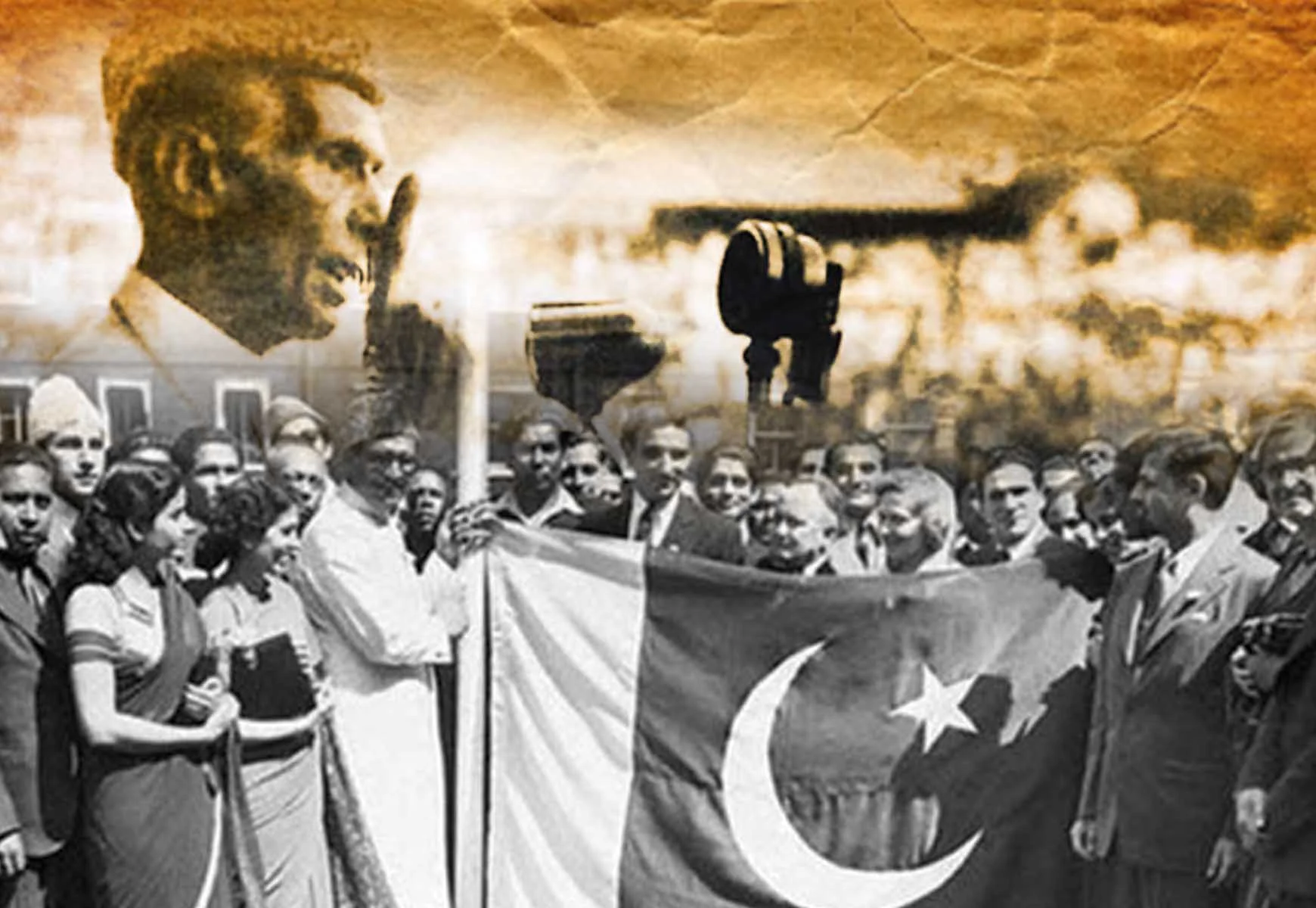


![Ukrainian and Russian flags with soldier silhouettes representing ongoing conflict. [Image via Atlantic Council].](https://southasiatimes.org/wp-content/uploads/2026/02/2022-02-09T000000Z_1319661209_MT1NURPHO000HXCNME_RTRMADP_3_UKRAINE-CONFLICT-STOCK-PICTURES-scaled-e1661353077377.jpg)

